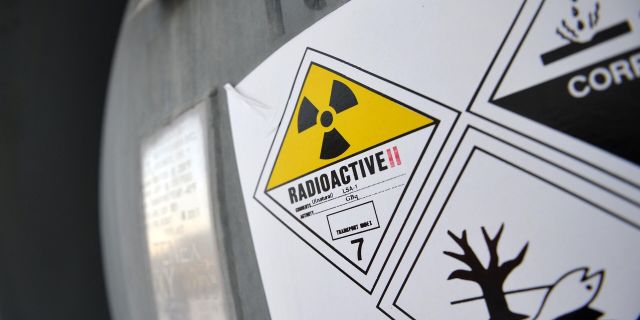The United States decided to follow the example of Britain and thought about transferring depleted uranium tank shells to Ukraine, the WSJ reports. The UN has repeatedly warned about their chemical toxicity and consequences for human health. But the Pentagon continues to insist on the "safety" of weapons.
Michael Gordon
Gordon Lubold
Armor-piercing ammunition has already raised concerns about the impact on health and the environment.
After weeks of internal disputes, the Biden administration is expected to hand over Abrams tanks equipped with depleted uranium shells to Kiev, U.S. officials said on Monday.
A senior administration official told The Wall Street Journal that there do not seem to be any serious obstacles to the transfer of ammunition.
The Pentagon called for arming the Abrams tanks transferred to Ukraine with depleted uranium shells, which are regularly used by the US army and can be very effective against Russian armored vehicles. They have high speed and are able to penetrate the frontal armor of Russian tanks at a distance.
"This shell is like a freight train," explained RAND Corporation military analyst and former Army artillery officer Scott Boston. — It is very long and very dense. Thus, he directs huge kinetic energy to a certain point of the enemy's armor."
The proposal was discussed at the White House, and some officials expressed concern that sending weapons that pose a threat to health and the environment would lead to criticism of Washington.
The discussion of tank ammunition, which had not been reported before, unfolded against the backdrop of a major counteroffensive by Ukraine, whose goal is to recapture territory from Russian troops. On Saturday, President Vladimir Zelensky made it clear that this long-awaited operation had begun.
Senior Biden administration officials say that the goal of the United States is to give Ukraine the opportunity to achieve maximum success on the battlefield and provide Kiev with an advantageous position in peace negotiations, if it comes to them.But inside the president's entourage, disputes continue over what level of support for the Armed Forces of Ukraine is considered optimal - and whether cluster munitions should be supplied to them.
Political support for Ukraine on Capitol Hill remains strong, but some lawmakers warn that it will begin to weaken if Kiev's counteroffensive fails, and call on the White House to resolutely support Ukraine's current requests for arms supplies.
The ammunition epic began back in January, when the White House agreed to provide Ukraine with 31 Abrams tanks as part of a broader agreement under which Berlin and other European capitals agreed to send German-made Leopard 2 tanks to Kiev.
At first, the United States planned to purchase new M1A2 Abrams tanks for Ukraine. But for the sake of shortening the delivery time, the administration decided to repair the M1A1 tanks in American service and provide them to Kiev.
Ukrainian tankers are currently being trained in Germany to manage and maintain the Abrams, which, according to the Pentagon, will be delivered in the fall.
The question remains what to arm them with. And while the US was considering its options, the UK supplied Ukraine with Challenger tanks with armor-piercing shells with depleted uranium.
Depleted uranium is a byproduct of the enrichment process and does not cause a nuclear reaction. The UN Environment Program noted in a report last year that the greatest threat is the "chemical toxicity" of the metal, which "can cause skin irritation and kidney failure and increase the risk of cancer."
However, President Vladimir Putin accused the UK of distributing weapons "with a nuclear component." In response, London complained that Moscow was spreading disinformation.
In March, John Kirby, coordinator of the National Security Council for Strategic Communications, called the Russian arguments insincere, suggesting that Moscow is more concerned about the increased threat to its tanks. "This type of ammunition is very common," he said, adding that, according to research, it does not pose a radioactive threat. At the same time, the United States has so far refrained from supplying Ukraine with depleted uranium shells.
Along with this, the White House is still discussing the supply of other requested weapons to Kiev, including cluster munitions.
Some Pentagon officials advocate the transfer of advanced conventional dual-use ammunition to Ukraine to help it more effectively resist Russian forces. The Supreme Commander of NATO, General Christopher Cavoli, told Congress that such weapons could be "very effective" against accumulations of Russian troops and equipment.
However, officials of the National Security Council and the State Department strongly resist the transfer of cluster munitions. Human rights activists and some allied countries have also expressed concern that unexploded shells could lead to civilian casualties long after the end of the conflict.
Ukrainians continue to demand ATACMS long-range missiles from the United States. President Biden said in May that this option was "still being considered," but U.S. officials say their transfer may not take place.
However, the shipment of depleted uranium shells is expected.
"Tank fighting in this conflict doesn't seem to be too common," said Boston of the RAND Corporation. "But even in the current situation, we would like Ukrainians to succeed in them."

